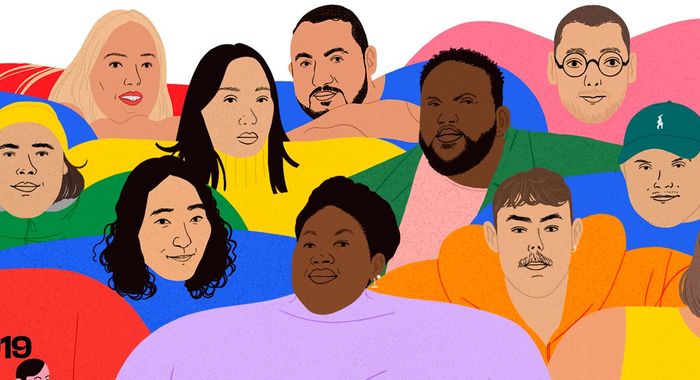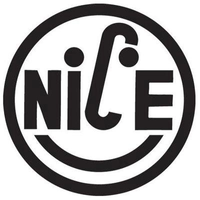“It all feels so new to me”: Leonard Suryajaya on the four-year project that changed his life (NSFW)
As a queer Indonesian citizen of Chinese descent, Leonard’s immigration to America wasn’t all that simple. Here, he discusses his tremulous journey and how it inspired him to create False Idol. It's Nice That, February 2020 https://www.itsnicethat.com/features/ones-to-watch-2020-leonard-suryajaya-photography-240220
Have you ever looked at an image and wondered, “what on earth is going on here?” Well, that was certainly the case when first glancing at the work of Leonard Suryajaya, whose photography portfolio is filled with chaos and wonder. The Chicago-based artist has been on our radar for quite some time now, with his otherworldly sets, colourful characters and culturally astute props making their way onto our screens and confusing us within an instant – and rightly so, for his imagery isn’t meant to be immediately understood.
So, in order to make sense of his imagery – and probably the best way to describe it – it’s imperative to take a step back and hear a bit about his journey. Tremulous, to say the least, Leonard grew up as a queer Indonesian citizen of Chinese descent and immigrated to America in 2006. “I turned 18 on the plane from Indonesia to California,” he tells It’s Nice That, “and looking back on my experience of coming to this country, it was really confusing. I wanted to stay; I didn’t ever want to go back to Indonesia.”
This confusion is a result of his upbringing in Indonesia. During his childhood, Leonard – a Buddhist, raised by a Muslim nanny and educated in Christian schools – bore witness to hostility and violence towards the Chinese ethnic minority, which in turn led to his family “running away” to Malaysia for a month. “People started looting Chinese businesses and people started harassing Chinese people, and in the 60s there was this purge against communism in the country,” he says. “That was my parents’ childhood; they had to run, they had to change their names, and any Chinese language or culture was banned.” These stories were of course devastating to hear, with his ability to trust and the notions of community, familial relationships and stability breaking down in succession. “Living in that pressure of making sure our family was safe – our house, our belongings – was the way that I was brought up. Then I moved to America and I suddenly felt a sense of independence.”
Despite gaining this new-found freedom, Leonard describes his move to the West as a somewhat bewildering one, it was a transition that encouraged a need to “fit in” and to remove his accent. “I needed to make sure that I sounded like everybody else, so I spent about two years learning how to speak English like an American, talking back to a voice recorder and listening to this woman ironing out my Asian accent,” he says. “Looking back, I ask myself: ‘why did I feel like I wasn’t enough?’”
After learning about Leonard’s past, his work starts to become a little clearer: he had lost his entire sense of belonging. Fast forward a few years, and he began making work for his project False Idol. First commencing in 2016, the ongoing project arose as he moved to America and married his husband six months after gay marriage was federally legalised. “When I started the project, it was really just about figuring out what life is in America as a visual artist,” he tells us. At the time, Leonard had just finished studying and, while applying for his green card, unfortunately, he was terminated from his teaching job simply because his permit had arrived two weeks too late. “Honestly, when that happened, it was just very stressful – I just thought, ‘fuck, what am I going to do?’” It was required that he document his income, his work, his relationship with Peter, and his family in order for his green card approval; Leonard was soon under the microscopic lens of the government.
“In the last two years, I can now see how it really demoralised me and took a toll on my body,” he says. “And, looking back, I felt like that was the necessary suffering that I had to go through to ask all of these questions about my value as a human and as an artist.” This notion is ubiquitously present in False Idol, a project that Leonard used – and still uses – as a catalyst for examining these roles. There was even a moment where he had taken a DNA test, simply to understand this “unresolved relationship” that was growing between himself and America. “I expected to look at the data and it would tell me that I’m 99 per cent from mainland China,” Leonard adds, before learning that he was actually part native Indonesian. “It was always instilled in me that I was different from everybody else – that was attacking me. But knowing that I am not pure Chinese was really quite unsettling, as they were trying to get rid of me. It made me question what it means to be socially superior, and what it means to discriminate based on the physical layer of an identity.”
This, in turn, formed the basis of False Idol – “a response to the time,” he explains, while also referencing the climate that was prevailing in the country – the rise of Trump, the women’s march and the appointment of the supreme court justice, for example. Most prevalent though, is the fact that False Idol is a reflection of how he’s had to deal with the past, as well as the difficult moments in his life that arose later on – such as dealing with depression, an eating disorder, body dysmorphia and his mother falling sick. “But I recognise the unnecessary suffering that I needed to go through to ask these questions about the meaning of life.”
“Long story short,” he continues, “the day before my show opened in Pittsburgh [at Silver Eye Centre for Photography in October last year], I got the notification that my green card was approved.” A moment of relief prevailed, as did an uncontrollable feeling of worry. “At that time, my mum was recovering from her surgery, and I – with my partner Peter – had accomplished the thing that I had set out to do in my life,” he says, “I’m now going to stay in America.”
With this awareness came the conclusion of False Idol, that which denotes a survey of immigration, social superiority and inferiority, trauma, relationships, family, trust and community. A mammoth project to say the least, it has now become a marker of his life. Each image is meticulously staged, cinematic and colourfully outlandish – an aesthetic that, to no surprise, evolved from a previous education in theatre. Tried and tested when he initially moved to California, Leonard discovered his love for the camera during the third year of his undergraduate studies: “When I took my first photography class, that’s when I realised how fucking awesome it felt. I could hide in the darkroom by myself and work on my stories,” he says, “and I don’t have to rely on actors or crews to carry out a project.”
Leonard was then accepted into graduate school at the Art Institute of Chicago, and in the winter breaks, he would travel back to Indonesia to visit his family. “At that time, in 2014, I went back to Indonesia and my grandfather passed away,” he recalls, which ultimately garnered him the courage to tell his mother that he was queer, something he’d shied away from for years because of his fear of rejection. “Leading up to that moment, I was making photographs with my family, with the thought that I could potentially not ever see them again – I didn’t know if they were going to accept me. I really relied on my camera.” This explains a lot about Leonard’s choice in a subject, many of whom are his family posing charismatically and absurdly within each frame.
As for his process, Leonard would usually spend around three hours setting up with the available materials, then three hours staging the house, positioning the camera and the lights, before “inviting” them to be in the photograph. “We would work together and figure out what kind of poses they would do.” With a large format camera as his tool of choice, it was a knowingly slow process which meant that his subjects could never see a completed image until his film was developed. “What makes me so perpetually inspired to make work with a large format film camera is the excitement of not knowing what we just did – it just becomes this gift of excitement and mystery that I adore so much.”
This was a couple of years ago, and since then, Leonard’s process is more or less the same – what’s changed though, is that he now incorporates his friends and acquaintances. An example of which is Immigration Supermodel, a photograph taken in 2017 during his artist residency at Skowhegan School of Painting and Sculpture in Maine. All of the subjects are fellow artists that were in the same residency, and it was shot in the same year when Trump had become president. “When we were in that residency, there were many questions about immigration,” he says, “and then I encountered a lot of artists in the middle of their immigration process.” Leonard continues to explain how the young Asian woman in the middle is placed to spark conversation and to celebrate what it means to be a minority, “because it feels really confusing.” He also notes his inspirations, citing the conversations he’s had with his subjects as his main muse and, specifically for this shot, an image of 1990s supermodels. “We are both queer and young, she’s a butch lesbian and Asian, and that image is not usually celebrated all that much,” he adds. “And in this instance, a reenactment of this 90s supermodel photograph by a butch Asian lesbian needed to happen.”
Leonard’s work is inexplicably empowering. Peeling back the layers of each prop, mask and peculiar performance, soon his concepts become transparent. False Idol is a mechanism that he’s used to understand his past and the world around him. Now in its final cohort – with a few remaining images he’s yet to deal with – this four-year body of work is soon to be fully complete. With an exhibition and video piece set in motion for the very near future, Leonard has plans to begin working on a separate installation piece inspired by two emails that he wrote, both of which are featured in the False Idol series.
What’s most important, is that he plans to stop being “afraid of those clowns in Indonesia,” because he has, quite literally, spent most of his life doing so. “The next stage is to face my fears and share this work – I mean, it all feels so new to me. There’s no point in being afraid anymore.”

